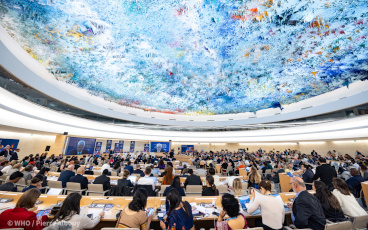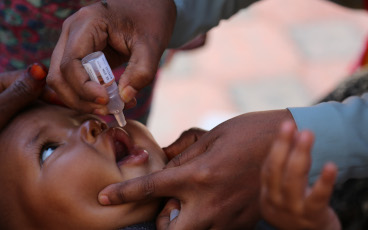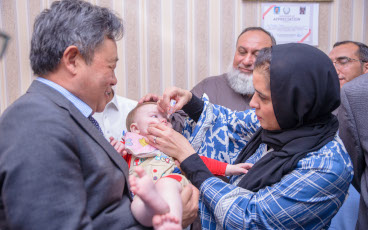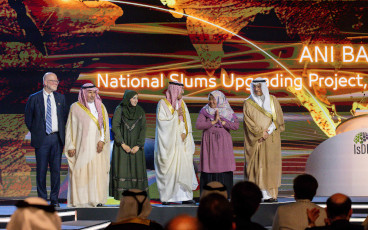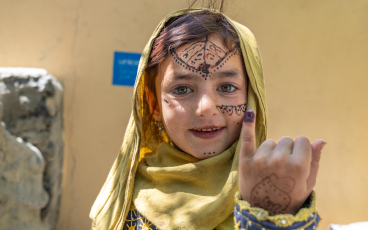ARCC calls for urgent action to stop all forms of poliovirus in Africa
Group issues recommendations to tackle both WPV1 outbreak in south-east Africa and variants across sub-Saharan Africa
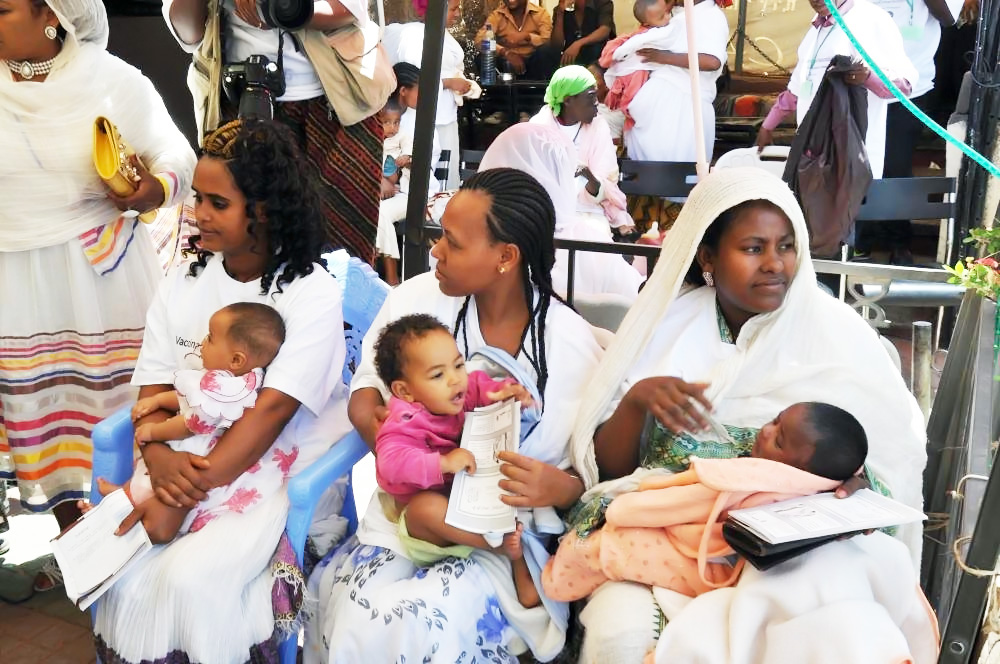
As south-east Africa continues to intensify efforts to stop a wild poliovirus type 1 (WPV1) outbreak detected in Malawi in February, the Africa Regional Certification Commission for Polio Eradication (ARCC) – the independent regional advisory body guiding Africa’s eradication effort – called for urgent action to stop all forms of poliovirus affecting the continent, be it wild or variant.
Reviewing the regional epidemiology at its bi-annual meeting on 6 June, the ARCC commended the governments’ commitments in Malawi, Mozambique, Tanzania and Zambia, in launching a series of emergency outbreak response campaigns, in response to the detected WPV1 in February. With two campaigns already implemented, further activities planned later in the summer will also feature Zimbabwe participating in the subregional outbreak response effort. The campaigns are supported by partners of the Global Polio Eradication Initiative (GPEI), notably WHO, UNICEF, BMGF, US CDC, GAVI, and local Rotarians, and by the Africa Rapid Response team.
The ARCC put forward four key recommendations to help ensure the outbreak can be rapidly stopped, namely:
- implementing plans to improve campaign quality, based on lessons learned and quality-response assessments from the initial two rounds;
- assessing WPV1 risks for older age groups and, as appropriate, expand target age groups of further outbreak response;
- further expanding and strengthening subnational surveillance sensitivity to more clearly assess potential spread of this outbreak and eventually verify that the outbreak has been successfully stopped; and,
- implementing surveillance-focused assessments in all five participating countries.
Commenting on the outbreak response and the group’s deliberations, ARCC chair, Professor Rose Leke said: “Countries must be reminded that wild poliovirus is endemic in Afghanistan and Pakistan, and south-east Africa is now infected. The risk of poliovirus being re-introduced or re-emerging is high, and the best thing countries can do to minimize the risk and consequences of polio is to strengthen immunity levels and subnational surveillance sensitivity.”
Countries, supported by GPEI partners, are also intensifying efforts to stop a number of variant poliovirus outbreaks in the Region, notably in Nigeria, the Democratic Republic of the Congo (DR Congo) and other areas. To combat this development, the ARCC encouraged partners and countries to prioritize the new novel oral polio vaccine type 2 (nOPV2) supply to highest-risk areas.
“Novel OPV type 2 is an important new tool,” continued Professor Leke. “But at the same time, it must reach the children it is intended to reach. Variant polioviruses paralyze children and affect their families and communities in the same way that wild polioviruses do, and hence must be responded to with the same level of urgency and political commitment and oversight.”
Professor Leke and the ARCC members underscored the importance of building up routine immunization capabilities and surveillance sensitivity, both of which are critical in combatting a wide range of infectious diseases, including COVID-19 on the continent. According to Professor Leke: “The decline of routine immunization in the Region is of particular concern and puts the most vulnerable children at an increased risk to diseases such as polio.” An immunization and surveillance gap formed in many African countries due to the Covid-19 pandemic, as health workers were limited in routine activities by social distancing restrictions. While national surveillance activities have been renewed, persistent gaps remain at subnational levels. The various outbreaks across Africa in 2022 demonstrate that surveillance and routine immunization activities must be improved.
In its concluding remarks, the ARCC noted with appreciation critical milestones achieved, including the recent successful closure of 32 outbreaks from ten countries, at the end of Q1 2022, clearly demonstrating that outbreak response strategies work when fully implemented and resourced. “We have the opportunity of reaching zero polio cases,” concluded Professor Leke, “but only if we reach the remaining zero-dose children. Let us all focus our efforts on that, and if that happens, success will follow.”



